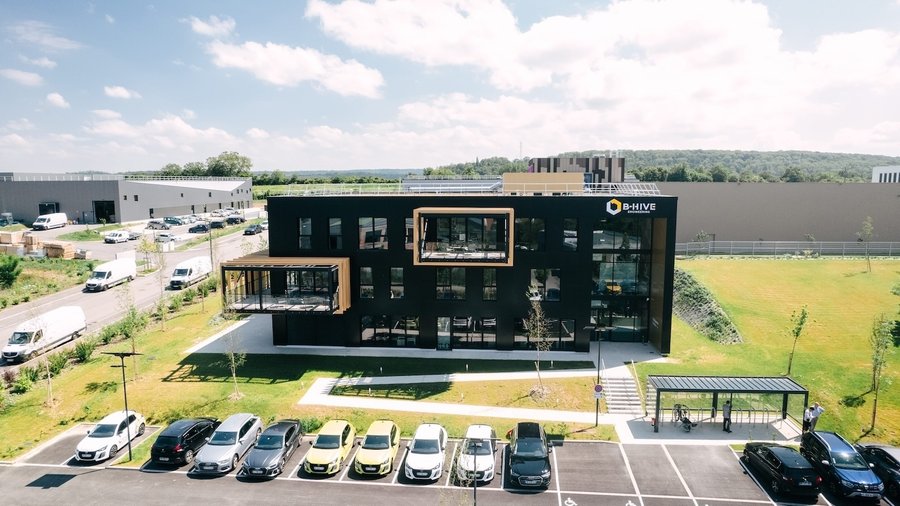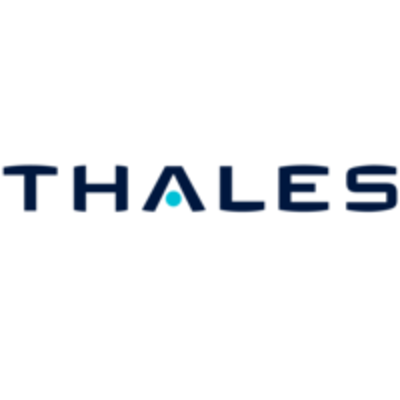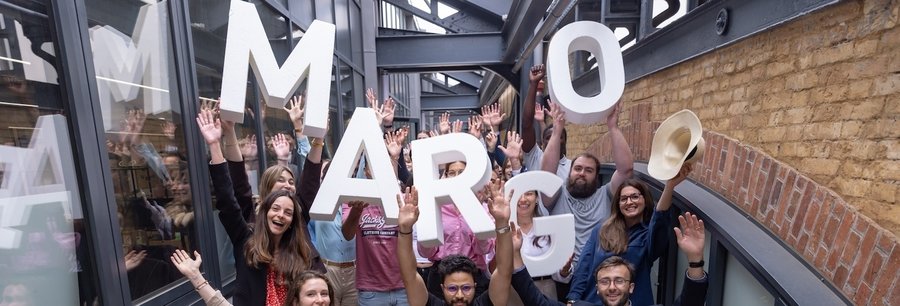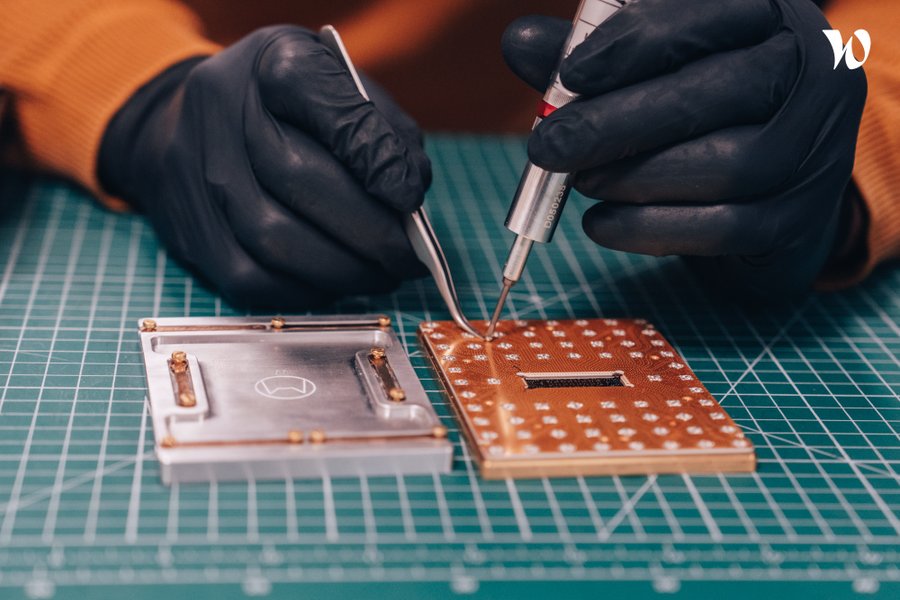PhD Position: AI-based Target Delineation & Tumor Tracking in Lung Cancer Radiotherapy
Le poste
Descriptif du poste
Lung cancer remains one of the most challenging cancers to treat and continues to be a leading cause of cancer-related mortality worldwide. Innovations in radiation oncology are critical to enhancing treatment precision and improving patient outcomes.
This PhD project — a collaboration between HEGP / APHP Hospital, Université Paris Cité, and TheraPanacea — aims to leverage artificial intelligence (AI) to tackle key challenges in lung cancer management. The research is structured into three interconnected work packages, each addressing specific aspects of treatment planning, delivery, and assessment.
Objective 1: AI-Driven Target Volume Delineation
The first objective focuses on developing a deep learning method for automatic delineation of target volumes in CT images. Accurate segmentation of tumors and surrounding organs at risk is essential for precise radiation therapy. However, manual contouring is time-consuming, labor-intensive, and prone to inter-observer variability. This work package will develop a convolutional neural network (CNN) optimized for 3D medical imaging to segment lung tumors and critical structures with high accuracy. Where available, multi-modal imaging data will be incorporated to enhance segmentation precision and consistency, streamlining treatment planning and reducing variability.
Objective 2: Real-Time Tumor Motion Tracking
The second objective addresses tumor motion during radiation delivery, primarily caused by physiological factors such as respiration. A recursive neural network (RNN) will be developed to automatically track tumor movement in real time using 2D bi-planar X-rays. By leveraging the sequential nature of motion data, the model will continuously monitor tumor positioning during treatment. This innovation aims to improve tracking accuracy and incorporate respiratory motion patterns, enabling more precise radiation delivery while minimizing exposure to healthy tissue.
Objective 3: Dose Verification via 3D Reconstruction and Deep Learning-Based Dose Simulation
The third objective addresses the critical need for accurate dose verification during lung cancer radiotherapy. Traditional bi-planar imaging techniques provide limited volumetric information, posing challenges for precise assessment of delivered dose distributions. A generative deep learning model will be developed to perform high-fidelity 3D reconstruction, enabling accurate localization of tumor and organs-at-risk positions in near real time. Leveraging this reconstructed geometry, a deep learning-based dose simulation framework will then estimate the delivered dose distribution, incorporating tumor motion and anatomical changes. This approach will allow clinicians to perform adaptive dose verification, comparing planned versus delivered dose maps to assess treatment accuracy and detect potential deviations
Profil recherché
MSc/MEng in Computer Science, Applied Mathematics, Physics, Statistics, or Related Field
The ideal candidate for this research should possess an excellent academic background, with a MSc/MEng in computer science, applied mathematics, statistics, or a related field. This foundational knowledge is crucial as it provides the essential theoretical and practical skills needed to develop and implement complex algorithms. Courses in algorithms, data structures, software engineering, and numerical methods will equip the candidate with the ability to design efficient computational models.
Prior Experience in Machine Learning / Deep Learning
The candidate should have prior experience in machine learning and deep learning, as these are the core technologies driving the integration of radiological imaging, histopathology, and clinical data in this project. The candidate should be familiar with different types of neural networks, including convolutional neural networks (CNNs) for image processing, recurrent neural networks (RNNs) for sequential data, and generative adversarial networks (GANs)/diffusion networks for data augmentation and synthesis. Additionally, experience with model training, hyperparameter tuning, and performance evaluation is essential. Practical projects or coursework involving the implementation of supervised, unsupervised, and reinforcement learning algorithms will be highly beneficial.
Prior Experience in the Use of Machine Learning in Healthcare - Exposure in Imaging will be Greatly Appreciated
Moreover, prior exposure to medical imaging will be greatly appreciated. This might refer to experience in processing and analyzing various types of medical images, such as X-rays, CT scans, and MRI scans. Overall, the candidate should bring a blend of strong theoretical knowledge, practical machine learning skills, and domain-specific experience to contribute effectively to the development of an integrated model for lung cancer diagnosis and prognosis. This combination will enable the candidate to navigate the complexities of multimodal data integration and create a robust, clinically relevant tool that can significantly impact patient care.
Envie d’en savoir plus ?
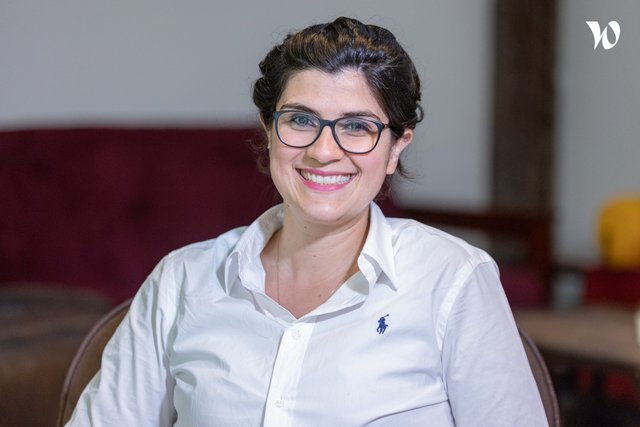
Rencontrez Thais, Clinical Partnership Manager

Rencontrez Despoina, AI Team Manager
D’autres offres vous correspondent !
Ces entreprises recrutent aussi au poste de “Basic and Applied Research”.



![Bassetti Group [FR]](https://cdn-images.welcometothejungle.com/SKg_NHrigLXeWirUhobANbYa6OOqe0Oq_bSwqCLmst0/rs:auto:900::/q:85/czM6Ly93dHRqLXByb2R1Y3Rpb24vdXBsb2Fkcy93ZWJzaXRlX29yZ2FuaXphdGlvbi9jb3Zlcl9pbWFnZS93dHRqX2ZyL2ZyLTQ5YTU3YTk2LWU2NjctNGQ2Zi1hN2I2LTg5N2UwM2E4NDNiZS5qcGc)
![Bassetti Group [FR]](https://cdn-images.welcometothejungle.com/jKu6nr3Ge773MWnxHjl4scUFuXY_rUwl60hbRxPc04s/rs:auto:400::/q:85/czM6Ly93dHRqLXByb2R1Y3Rpb24vdXBsb2Fkcy9vcmdhbml6YXRpb24vbG9nby83NDk3LzE2NzU3OC9jZjcxN2FkNi04YTExLTRkZGQtYmNmNS1iOWJhOTMzYjA4ZmIucG5n)


